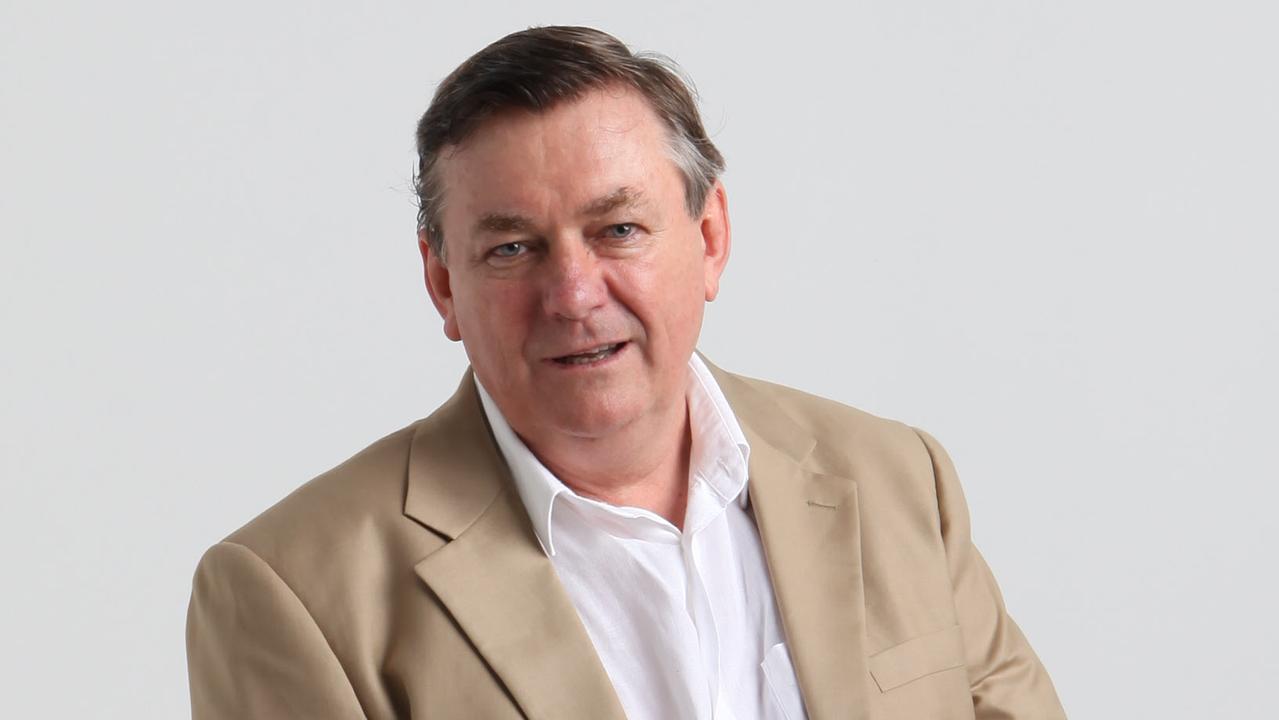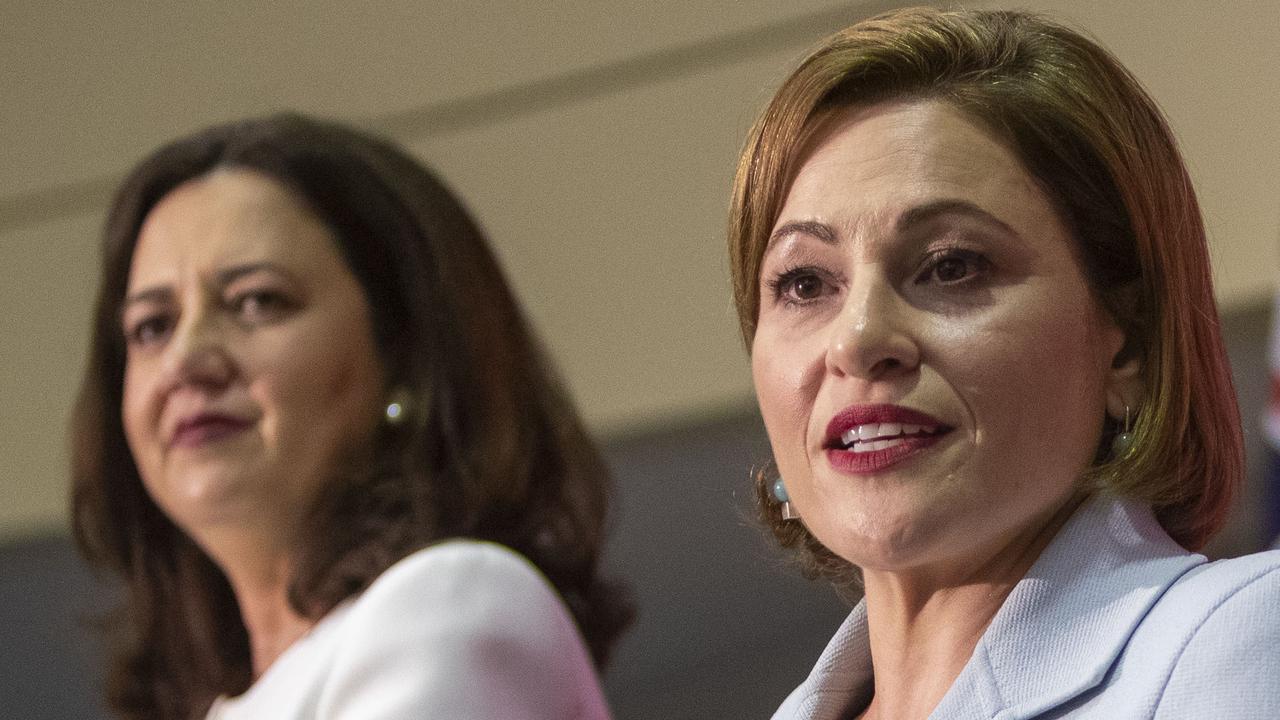Zombie drug Australians won’t even know they’re taking
We are in the grip of a methamphetamine crime wave, with new mind-blowing substances on the way, writes Des Houghton.
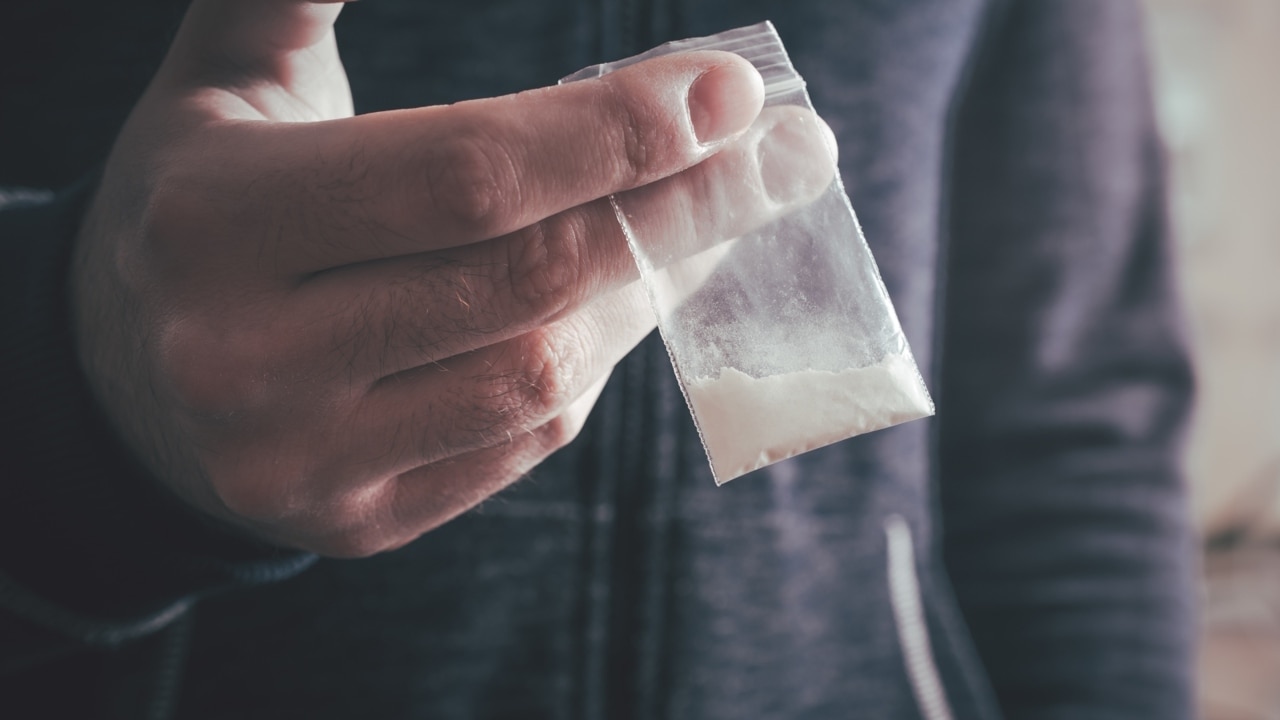
Des Houghton
Don't miss out on the headlines from Des Houghton. Followed categories will be added to My News.
New drugs called nitazenes that are 300 times stronger than heroin have hit the streets in Australia with deadly effect.
Nitazenes are so potent that the Australian Crime Intelligence Commission says amounts as small as two grains of sugar are enough to kill.
Another newcomer in the drug lexicon is xylazine, the “zombie drug”. It is a powerful tranquilliser used to pacify injured horses and cattle.
The zombie drug is also known as “tranq” in the United States and is usually cut into heroin or fentanyl or cocaine, according to media reports.
Xylazine is called the zombie drug because it really can turn users into the walking dead. They wander around in a stupor, often falling unconscious on the streets where they are vulnerable to robbery and rape. Or they slide into a deep coma and die, as more than dozen have done recently in Scotland.

Xylazine is also called the zombie drug because its users develop the rotting flesh disease, necrosis, that causes abscesses, large open lesions and gangrenous limbs – another macabre similarity to characters from zombie horror movies.
The Australian Federal Police says xylazine comes from China, Mexico, India and Russia and is often traded to vets who use it legitimately to ease the pain of larger animals.
The Alcohol and Drug Foundation has recently published a fact sheet about nitazenes, a strong synthetic opioid it says has been detected in several Australian states.
The foundation says nitazenes carry a high risk of overdose. They were developed in the 1950s but never approved for medical use because they were too powerful.
They are back with a vengeance, made illicitly in labs and said to have the same destructive impacts as other drugs such as MDMA or ecstasy, benzodiazepines, ketamine and heroin.
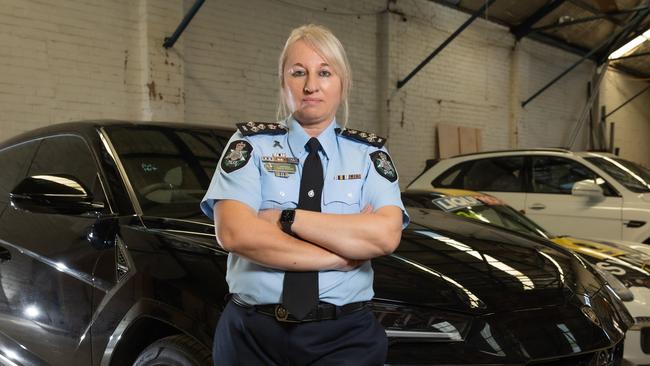
Australian Border Force Officers recently seized 22 batches of suspected nitazene sent as mail cargo from the UK.
Australian Federal Police Commander Paula Hudson warned more would come.
“This is why the AFP works closely with Border Force to disrupt the illicit drug supply chain,” she said.
“Nitazenes were never approved for any therapeutic purpose due to their adverse effects and high risk of overdose due to potencies similar to or greater than fentanyl.
“If you choose to take this drug, the risk you are taking is your own life.
“Nitazene can be presented in a variety of forms including powders, tablets, nasal sprays, and even vape liquids.’’
Hudson also said something that should stop recreational drug users in their tracks. Nitazenes are often sold as cocaine, heroin, ecstasy, and counterfeit pharmaceuticals, she said.
Users in the future will have no idea what is killing them.
America’s principal public health agency, the Centre for Disease Control, agrees. It warns people often use xylazine without knowing it because it is blended with other drugs.
This may help explain a recent tragedy in Australia.
Alarm bells were ringing around the nation in law enforcement agencies and in hospital emergency departments after the deaths of four people in the Melbourne suburb of Broadmeadows, a cultural melting pot with less than half the population born in Australia and where followers of Islam outnumber Catholics by more than two to one, according to the 2021 Census.
In a bedroom in a Broadmeadows bungalow, the bodies of a 17-year-old boy, 32-year-old man, 37-year-old man and 42-year-old woman were found. Police say preliminary tests detected the presence of synthetic opioids, probably nitazenes, or a cocktail of them.
Shane Neilson, the principal drugs adviser at the Australian Criminal Intelligence Commission, refers to Australia as a “stimulant nation”.
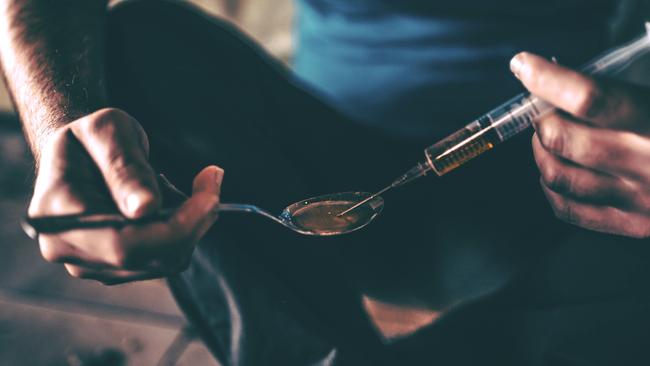
He administers the program that finds drugs in wastewater drawn from 56 sewage treatment plants: 20 in capital cities and 36 in unnamed regional centres.
The tests conducted by the University of Queensland and the University of South Australia reveal the drug habits of 55 per cent of the population. And the results are grim.
Nielson’s latest water samples in December 2023 showed meth consumption in Queensland was at the highest level recorded since monitoring started. It was also higher in regional Queensland than all state capital cities.
Cocaine consumption in Queensland has increased in all the six-monthly tests conducted since 2022, with consumption in unidentified tourism towns high.
More than four tonnes of cocaine with a street value in excess of $1.3bn were consumed in Queensland in a year. And the crime commission reckons $12.7bn was spent on meth, cocaine, heroin, cannabis and ecstasy in Australia in a single year. An astonishing $10.58bn of that was spent on meth.
Shane Neilson said heroin was less prominent now than it was in the early 2000s, although there has been a surge in the misuse of ketamine, a drug used to treat severe depression.
Ketamine is described by the Black Dog Institute as a dissociative drug, which means it causes people to feel detached from their body.
Methamphetamine is trafficked in its purest form as crystal methamphetamine known on the streets as ice. In its powdered form it is known as speed or crank. It is often manufactured by international crime syndicates that target countries like Australia and Japan because there are plenty of affluent users willing to pay the higher prices for it.
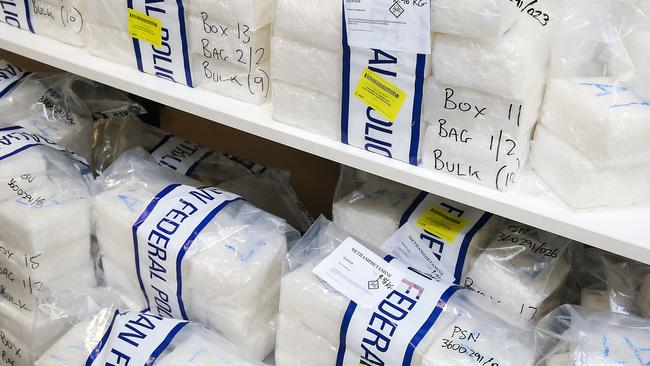
The cocaine market is expanding in Australia, but sales are much smaller than crystal meth.
Crystal methamphetamine is a bigger menace than cocaine. Tom Blakeley from the AFP said its impact on ambulance and hospital services was growing.
He said 27 people on average were admitted to hospital every day in 2022 after taking methamphetamine.
And more meth is turning up in roadside drug testing by Queensland Police. About 40 per cent of children taken into state care have at least one parent hooked on it.
Worryingly, crimes associated with meth seem to be especially violent.
The Brisbane Supreme Court heard a “delusional” man who had not slept for three days was “intoxicated by methamphetamine” when he doused an associate with petrol as he slept and set him alight, holding the door shut to prevent him from escaping. The victim succumbed to his shocking injuries three days later.
In an unrelated crime at Redland Bay, an innocent grandmother who answered a knock at the door was shot in the face by a drug dealer who went to the wrong house.
Drugs used to be smuggled into Australia from the “Golden Triangle” region of Myanmar, Laos and Thailand. Now the global trade involves countries known to the law enforcement community as “the Mekongs”. Myanmar, Cambodia, Laos, Vietnam, and China are now the source of meth and opium, according to the United Nations. Meth is also trafficked from Mexico.

Neilson said drugs were produced on an “industrial scale” in Myanmar with precursor chemicals ephedrine and pseudoephedrine smuggled from China and India.
He said hundreds of kilos of drugs were being manufactured. Despite record seizures, 10.5 tonnes of drugs were consumed in Australia last year.
Neilson said the biggest threat to Australia was from synthetic drugs produced in a lab. He says there is a chemical arms race underway with new pre-precursor chemicals being invented.
He is already doing preliminary testing for nitazenes and xylazine.
Attorney-General Mark Dreyfus is reviewing laws governing the Australian Criminal Intelligence Commission. The commission is a member of the Five Eyes Law Enforcement Group.
IRRITANT OF THE WEEK
Malcolm Turnbull for his gratuitous thug slur against Opposition Leader Peter Dutton. Why is the former PM so full of animus?




